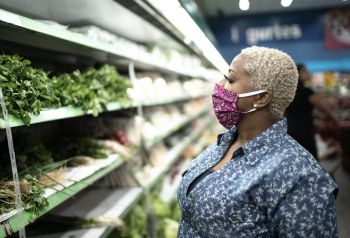The Impact of Covid-19 on Food Security. A quantitative analysis of the rise in London’s existing food insecurity due to the financial impact of Covid-19
Abstract
Background: The lockdown, enforced by government to limit the spread of Covid-19, has resulted in economic standstill equating to decreased working hours, pay cuts and job losses which has caused an increase in food insecurity. In the latest global food security report, 3.4 million people in the UK alone were found to be moderately to severely food insecure. Since the lockdown began, 8 million people have reported food insecurity which disproportionately effects those most vulnerable. This study aims to determine who these vulnerable groups to food insecurity are in the UK and what needs to be done to facilitate positive change and minimise future inequalities.
Methods: This observational quantitative study makes use of the Understanding Society Covid-19 survey data which forms part of a longstanding longitudinal study that has acted as a representative of all households within the UK since 2009. Access to raw data was granted by the UK Data Service and was analysed using the appropriate SPSS tests. The original sample was stratified to be representative of London, which then consisted of 1849 respondents. Selected questions relating to financial and food bank use were analysed using SPSS and compared between February (pre-lockdown) and April (post-lockdown).
Results: Black, Asian and Minority Ethnic (BAME) respondents and those not born in the UK had significantly less monthly income than their counterparts in February and remained significantly lower during the lockdown. These groups also had an increased dependency on foodbanks since the start of the pandemic.
Conclusion: BAME communities and those not born in the UK are revealed to be the most vulnerable groups to food insecurity. The government has taken steps to mitigate the negative financial impact of the pandemic for some, yet many had to rely on non-governmental organisations (NGOs) to fill in the gaps. The current health crisis provides an opportunity for change and the UK government should act now to prevent many more becoming victims to food insecurity.

Authors retain all copyrights. In making a submission to World Nutrition, they are certifying that all material is theirs except quotations, as indicated, and that they have obtained permission for any photos, tables, or graphics taken from other publications or websites.




